 written by Josh Beaird
written by Josh Beaird
The annual Allinial Global Financial Institutions Forum took place July 28-29. The Whitlock Company is a member firm of Allinial Global, which is an association of legally independent accounting and consulting firms. This network provides members access to specialized knowledge and expertise that exists throughout almost 100 participating firms. The Financial Institutions Forum gathers annually for member firms with financial institution practices to learn about emerging trends in the industry, with specific emphasis on community banks. We covered many areas including the current state of the industry, regulation, technology, and accounting guidance.
State of the Industry
The conference started with Edward J. Carpenter, Chairman and CEO of Carpenter & Company, which is a US bank holding company that starts, invests in, and helps build banks. He noted several trends that are placing pressures on community banks, but also creating opportunity.
First, a negative interest rate environment is something that community banks need to consider. Central banks around the world are coordinating like never before. Europe and Japan have already been willing to move into negative territory and it is not unlikely in the United States if the economy slows again. Therefore, banks should be prepared for this scenario in their asset/liability models if we move into another recession.
Second, there is still a possibility that the big banks will be broken up. Although there is no general consensus as to what effect this would have on community banks, it is something to keep an eye on since there is still political momentum to address “too big to fail.” Lastly, the current regulatory environment is here to stay for the foreseeable future. As an industry, it is time to stop complaining and adapt to the new environment as best as possible. It will still be important to advocate for change, but it is unlikely a large overhaul will occur anytime soon.
On the positive side, there are still things that community banks can do that lead to success. Mr. Carpenter noted that the most successful banks tend to have marketing for fee income, specialized lending, and wealth management services. If your bank is looking for growth, these are areas to evaluate.
Regulatory Panel
The next session included a discussion with examiners from the Federal Reserve, FDIC, and OCC. Much of the discussion focused on the Current Expected Credit Loss Model (CECL), which was passed by the Financial Accounting Standards Board in June. Although the effective date will be 2021, for most community banks, examiners may start asking for implementation plans about one year from now. In general, implementation plans should include the following:
- Becoming familiar with the new standard
- Determining how it effects your bank based on the institution’s size and risk of lending and debt security investments
- Reviewing existing allowance and credit risk management practices to identify processes that can be leveraged when applying the new standard
- Identifying data needs and necessary system changes for implementation
- Determining how and when to start collecting additional data
They also stressed that banks should not incorporate expected loss concepts into their current models in an attempt to smooth the impact.
Technology
Jerry Miller, Wipfli LLP, presented on technology. Financial Technology (FinTech) is disrupting the traditional banking industry. Financial Technology is a line of business based on using software to provide financial services, such as peer-to-peer lending, payment services, and insurance. FinTech companies are often start-ups founded with the purpose of disrupting incumbent financial systems and corporations that rely less on software.
While these can pose a threat to traditional banking, community banks should focus on the potential opportunities and integrate the best ideas of FinTech. These include, increased revenue from innovative new products, distinctive digital sales, and using data to cross-sell. Also, operational costs could be lowered from automation and digitization. It is inevitable that banking will follow the path of many other industries and transition to a more digital platform. Senior Managers needs to be aware of the risks in this area and address it appropriately to keep the community bank relevant.
Accounting
As with the regulatory panel, CECL was much of the focus during the accounting update. Some other accounting changes that will not directly affect banks as much, but could impact their customers include a new lease standard and revenue recognition standard. These will go into effect over the next several years, depending on the entity type, so bankers should be aware of these changes when they are reviewing financial statements and debt covenants with customers.
Click here to read our 2015 Recap. If you have any questions about the areas discussed in this article, please contact us 417-881-0145.

